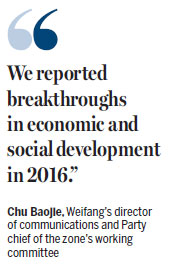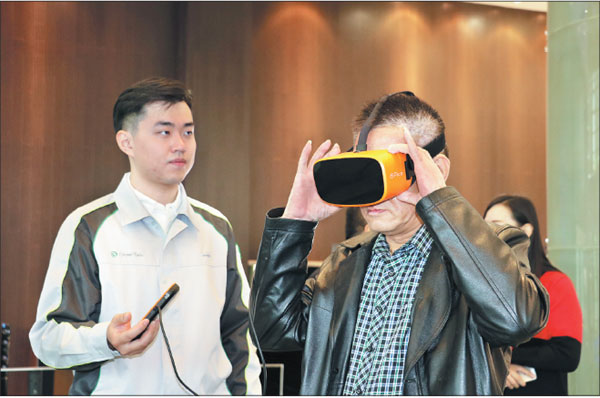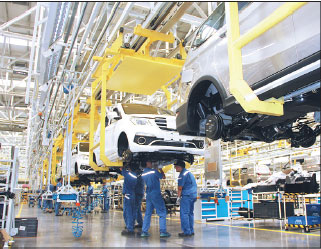In the zone for rapid development
High-tech area posts sensational growth figures, Tang Zhihao reports.
Weifang Hi-Tech Industrial Development Zone, one of China's first national-level economic development zones, reported outstanding economic results in 2016.
"The year of 2016 is the starting point of the 13th Five-Year Plan (2016-20) period," said Chu Baojie, Weifang's director of communications and Party chief of the zone's working committee. "All related parties in the zone worked hard to support business growth. We reported breakthroughs in economic and social development in 2016."
He made the comments in a speech at an economic meeting on Jan 19 that was attended by all of the zone's leading officials.
The region ranked No 23 among 147 national-level economic development zones in China in terms of comprehensive development power in 2015, an improvement on its ranking of No 25 in the previous year.

The industrial output value of the development zone reached 38 billion yuan ($5.55 billion) in 2016, an increase of 7.8 percent from 2015.
In 2016, companies in the zone reported strong economic growth amid the new normal of slower growth in China.
In the first 11 months of 2016, many key companies in the zone, including electronic component manufacturer GoerTek and leading commercial vehicle manufacturer Foton, reported double-digit industrial output growth. The industrial output of Weichai Power, which is involved in the research and development, manufacturing and sale of diesel engines, increased by 55.3 percent to 17.8 billion yuan. Shengrui Transmission, the developer of the world's first front-engine, front-drive 8 gears auto transmission (8AT), said its industrial output reached 1.12 billion yuan by the end of November last year, an increase of 35.6 percent year-on-year.
The high-tech zone has made substantial progress in the construction of an international power industry park, a photoelectricity industry park, a health industry park and a virtual reality science and technology park. It also obtained approval from the central government to build a national independent innovation demonstration zone and, in addition, developed an e-governance system, offering improved accessibility and convenience for residents.
Premium service
Companies in the zone believe premium government service is one of the key factors that supported their business growth in 2016.
The development zone has developed error-tolerance mechanisms to encourage officials to implement new ideas with the aim of accelerating the development of key projects in the city. The zone also has mechanisms to evaluate and punish officials and government employees whose productivity fails to meet the required standards.
In March 2016, the development zone required some of its more senior officials to establish direct contact with 196 key companies to ensure that they could react to businesses' requests in an effective and efficient manner.
Strong technological and financial support has also played important roles in supporting business growth in recent years.
The zone has established partnerships with more than 150 foreign research institutes and universities. It also attracted 30 professionals to the region that were named in the 1,000 Talents Plan, according to Hou Peng, an official from the zone. The plan was set up by the Chinese government to encourage high-end foreign workers to relocate to China.
Future development
Looking forward, the zone's government has vowed to provide better services to businesses in 2017.
"We will continue to enhance government service quality to support business development in 2017," said Song Chifeng, the zone's deputy Party chief and director of its administrative committee. "We will also provide more support to companies of all sizes, improve the innovation service system, continue to streamline administrative procedures and designate more power to lower-level governments."
Chen Jiacai, deputy Party chief of the zone's working committee, said: "In 2017, we will strive to provide premium services to companies and residents in the region."
Thanks to local government support, companies in the zone are upbeat about future development.
Shengrui, for example, has set a goal to produce 250,000 8AT units in 2017.
Contact the writer at tangzhihao@chinadaily.com.cn
|
A GoerTek employee helps a client to experience VR technology. The company, which produces electronic components, is one of the key enterprises in the Weifang Hi-Tech Industrial Development Zone.Photos Provided To China Daily |
|
Technicians work on a production line at Foton, the high-tech zone's leading commercial vehicle manufacturer. |
|
A technician with Hoaco Automation Technology in Weifang tests the company's precision equipment. |
(China Daily 02/08/2017 page12)

















